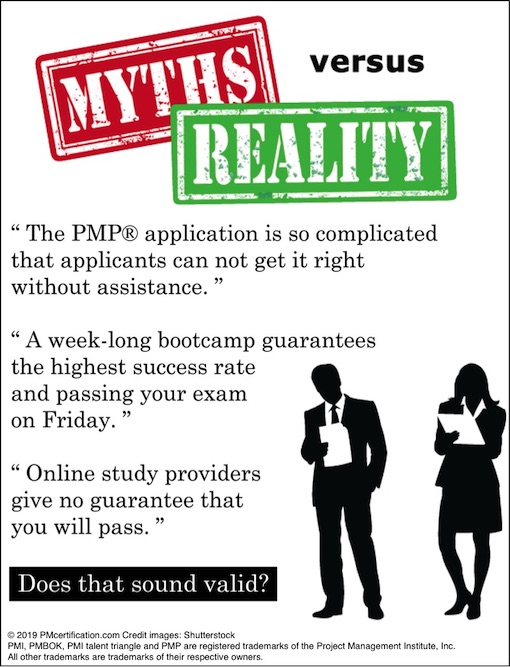STUDENTS AND ALUMNI STORIES
Story No. 1: SPREADSHEETS AND AUDIT
“I had been thinking about pursuing my PMP for quite some time before actually acting on it. As a first step, I got a PMI® membership and navigated the PMI® website through all the available resources. Finally, I started the PMP registration process and realized it was quite the task, declaring and documenting previous project management experience I’d gained over the last 8 years and 15+ projects. It took no time for me to decide that this was a spreadsheet task. I immediately prepared a sample template to cover the name of the project, objective, start and end dates, my manger’s contact details and most importantly, the percentage of time spent on each phase. I completed this spreadsheet and happily submitted my registration.
Unfortunately, this wasn’t the end. My application was picked up in audit, but this spreadsheet came to my rescue! I sent verification forms to my managers and they returned them to me in no time. I would suggest doing plenty of homework and planning before you actually start the registration process… it will help you save lots of time later. Good luck.”

Story No. .2: PROCRASTINATION VS. GOAL SETTING
“I had procrastinated literally for a couple of years before getting serious about earning my PMP certification. The main reason for delaying was my concern over the sheer volume of information I would be required to absorb and then remember for the exam. It finally took a job opportunity that required me to be certified within the first 6 months before I got serious. The submission process for me was very straightforward and not difficult at all. I had several years of practical Project Management experience, easily applied and was accepted to sit for the exam. I used MS Project and a Gantt chart diagram to manage my experience inventory and time frame.
Once I was able to take the mock exams comfortably, I registered for my exam date. At that point I was still nervous about passing but there was no sense in cowering, knowing the amount of work I had done to prepare. ”

Story No. 3: MY PMP PROCESS
“In my opinion, the key to studying for the PMP is to strategically use a variety of resources in conjunction with the PMBOK. I used Rita’s book (and her electronic exam simulations), A 4-day boot camp (this is expensive, but worth it for those where cost is less of an issue), YouTube and Slideshare presentations, podcasts, and many other free (or low-cost) sources for mock exams.
At first glance this may seem to be too much, but I personally believe no one source will prepare you sufficiently. The trick is to know enough before you choose to find the “sweet-spot” combination, and I digested all the material with a view towards what did I know, and what did I need to focus on more. I also recommend you get your application going/out of the way. Once the application is out of the way, you are free to study unburdened by that process. I think this timing can be shortened or lengthened given your availability. I wouldn’t stretch it too long, however, lest you lose focus.
PMI, PMBOK, PMI talent triangle and PMP are registered trademarks of the Project Management Institute, Inc. All other trademarks are trademarks of their respective owners.
We do not endorse or recommend any particular training or services. We provide information only which we hope are helpful.
